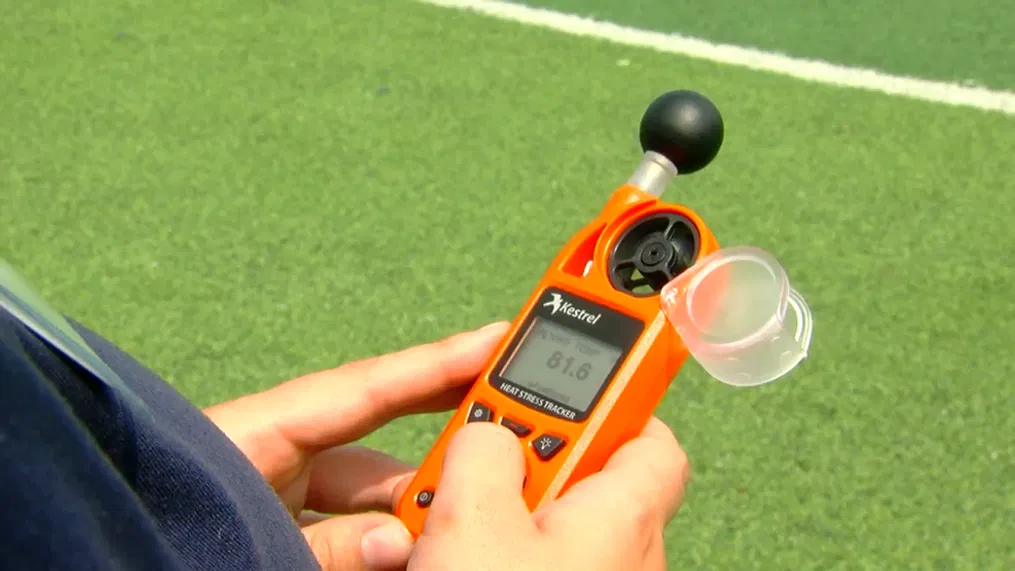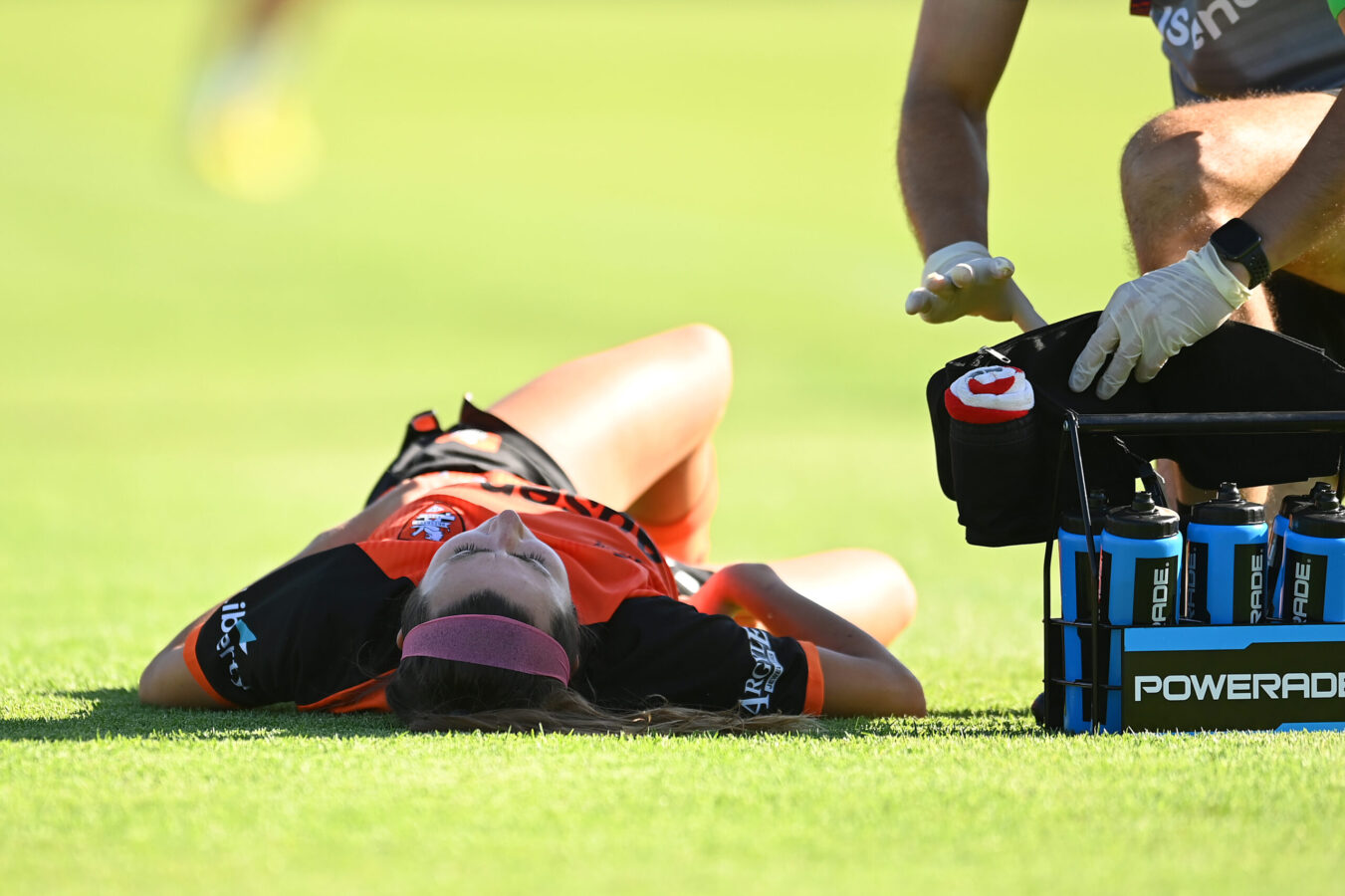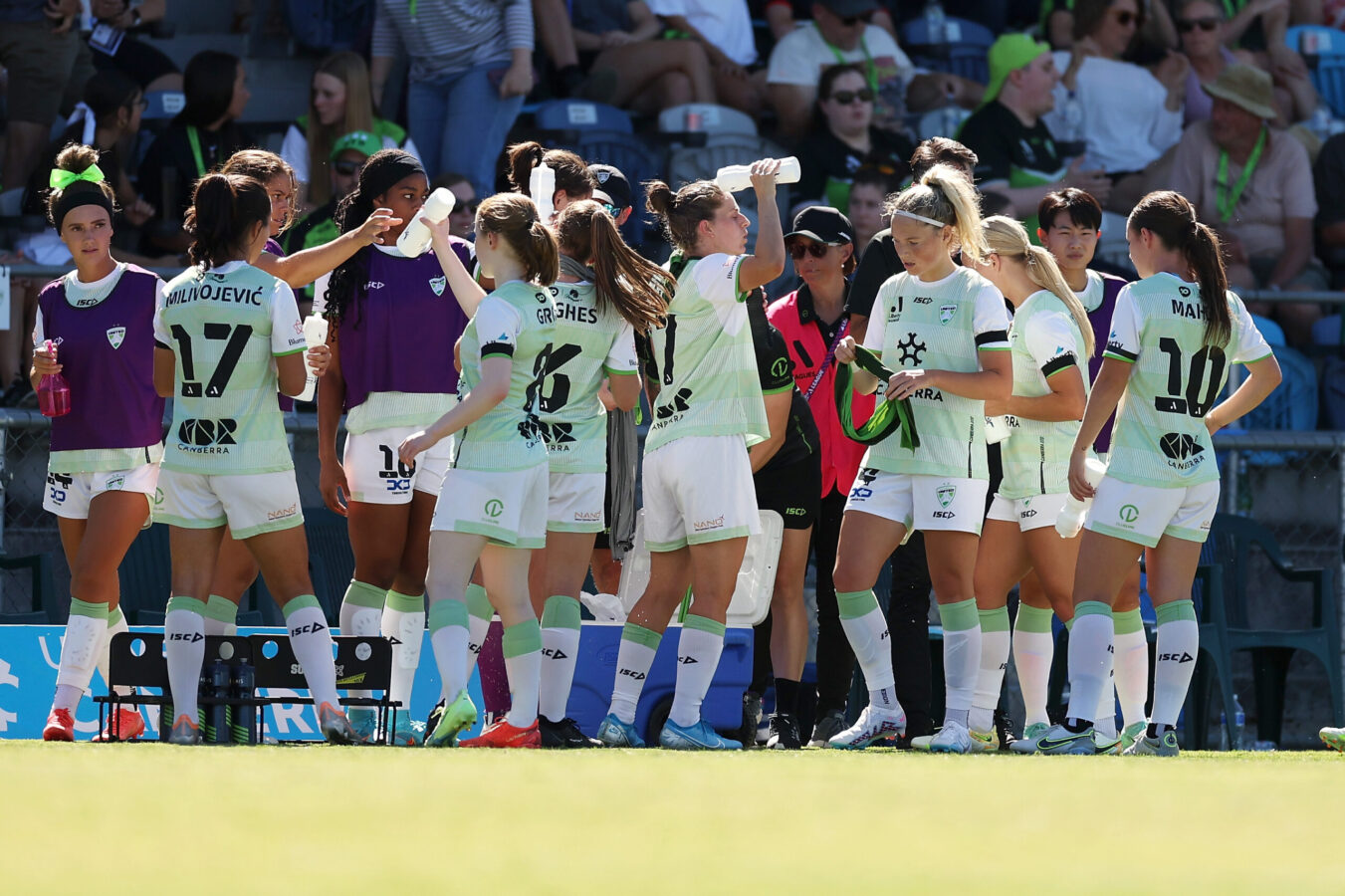As the A-Leagues move into the summer months, new measures designed to reduce the impact of heat on PFA members will come into focus.
For the 2023-24 season, the Australian Professional Leagues (APL) have implemented a new approach to mitigate the impact of extreme summer heat on A-Leagues players and fans.
Gone are 3pm kick offs between mid-December and February, with the new policy dictating matches will commence no earlier than 6pm in Stadia with sufficient lighting. The earliest stand-alone fixtures scheduled will be 5pm, when matches are played at Stadia without adequate lighting for broadcast requirements. In the event a double header is hosted at stadia with adequate lighting, the first match of the double header can kick off at 5pm to allow both matches to commence in a suitable time slot.
The new later kick offs, largely informed by player experiences from the 2022-23 season, has been introduced to safeguard players, ensure a more positive fan experience, and create fewer scheduling changes during the summer months when temperatures peak.
With the mercury already starting to creep towards the mid to high 30s across Australia in major city centres this December, the policy is likely to be tested in the coming weeks. However, the measures will likely deliver a less disrupted season for players and fans in 2023-24.
Note: As the weather in New Zealand is unlikely to reach the consistent forecast highs experienced in Australia between December – February, Wellington Phoenix’s home matches may be scheduled before 5pm.
A-Leagues Heat Policy
The A-Leagues Heat Policy involves two essential monitoring procedures – Wet Bulb Globe Temperature (WBGT) and ambient temperature – which are taken prior to a match and monitored throughout. The WBGT ‘test’ and ambient temperature monitoring were in place last season.
The WBGT is the defined method of quantifying the risk of heat stress in extreme heat, which combines weather factors such as ambient temperature, humidity, wind and solar radiation.
The match day WBGT reading will determine what action APL will take to mitigate the impact of extreme heat. It determines whether a match will proceed as normal, if drinks breaks should be implemented, or whether the match commissioner should delay or postpone a match.

An example of a WBGT device.
If the WBGT forecasts 28 degrees Celsius or above, and/or the ambient temperature forecasts 38 degrees Celsius above, the competition organisers will decide the course of action outlined above.
The heat policy also recommends clubs adopt a range of additional mitigation strategies for players, including the supply of ice, cooler boxes, ice water-soaked towels and misting fans in change rooms and the technical areas (where permitted), to each team.
Shading should be provided for team benches – and during player warmups, where possible, to allow players to prepare away from the sun’s glare.
Player feedback incorporated to enhance A-Leagues Heat Policy
Several A-League Women’s fixtures were impacted by heat last season. Within the PFA’s post-match surveys during the 2022-23 A-League Women campaign, players reported the effects from extreme weather in 29 matches, while 18 matches required mandatory drinks breaks.
There were eight instances where players believed their match should have been postponed. Health issues, such as heat exhaustion, shivers, heat rash, and vomiting were reported in six cases.

The 2022-23 PFA ALW End of Season Survey highlighted a near-consensus among players regarding scheduling and heat. An overwhelming 85% of players preferred later kick-off times as a remedy to heat-affected matches, emphasising the importance of player welfare in scheduling decisions.
The PFA shared this feedback with the APL ahead of the 2023-24 season and published the players’ feedback in the 2022-23 PFA A-League Women Report, which is available here, which highlighted the gap between the effectiveness of the policy and the player experience.
While fewer matches were scheduled at 3pm in the A-League Men last season, players also provided feedback to the PFA via post-match surveys. On three occasions players reported adverse side effects from playing matches in extreme heat – one match in December and two in January.
Additional mitigation and monitoring
Whilst positive steps have been taken by the APL, the PFA is closely monitoring the effectiveness of the new approach and the existing Heat Policy. At the start of each week, the PFA monitors the weather forecast on match days and identifies fixtures that could be impacted by extreme heat in the forthcoming round.
So far in December, the PFA has flagged three fixtures: Sydney FC – Macarthur (ALM, 9 December – 39 degrees), Western Sydney Wanderers – Central Coast Mariners (ALW, 8 December – 33 degrees) and Brisbane Roar vs. Western Sydney Wanderers (ALM, 1 December – 34 degrees) as matches that could have required application of the heat policy. There was no intervention required for those fixtures.
However, two upcoming fixtures this weekend could provide a test of the new heat policy.
Brisbane Roar hosts Western Sydney Wanderers at Perry Park from 5pm this Saturday afternoon in the A-League Women. The local forecast is 35 degrees. In the A-League Men, Newcastle Jets host Perth Glory at McDonald Jones Stadium will kick off at 6pm. The maximum in Newcastle is forecast to be 33 degrees.

The PFA is committed to working effectively with the APL to implement the policy.
As such, the PFA will also monitor the implementation of additional measures such as ice and cooler boxes, ice water-soaked towels, misting fans in change rooms and the technical areas and shade on the benches are in place. In 2022-23 these measures were adopted inconsistently.
In addition, the PFA also continues to take advice on how to mitigate impacts from FIFPRO’s Chief Medical Officer. FIFPRO advocates for international policy on behalf of 69 member unions.
Related: FIFPRO: Eleven tips for dealing with hot conditions in professional football
A collaborative approach delivers better outcomes for all
Ongoing collaboration between the PFA, APL, and clubs will ensure the implementation of effective heat mitigation strategies during the summer months of the season. PFA Co-Chief Executive Kathryn Gill said that the new policy would allow the APL and PFA to anticipate extreme heat conditions rather than just react to them.
“It’s an excellent example of the players’ voice being embedded into policymaking and, at the same time, amplifies the importance of our annual reports, and regular surveys of our members, which provide a strong basis for quality improvements in the A-Leagues.
“The 3pm kick offs were detrimental to the players, clubs and fans, so it was a sensible outcome to shift kick offs back.
“There will continue to be potential adjustments to matches during summer and we will need to look at each match on a case-by-case basis, but the commitment to proactive planning ensures a more certain environment for everyone involved.”







